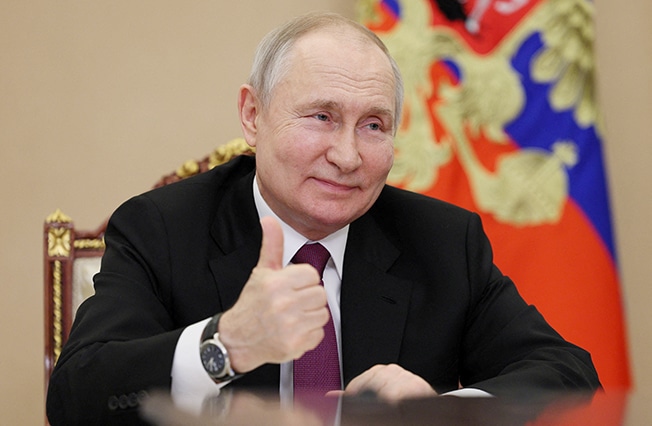Russia on Thursday imposed Soviet-style restrictions on British diplomats, requiring them to give at least five working days’ notice of any plans to travel beyond a 120-km (75-mile) radius, due to what it described as London’s “hostile actions”.
Since President Vladimir Putin sent troops into Ukraine in February 2022, the West has provided Kyiv with military aid worth tens of billions of dollars and imposed stringent economic sanctions.
Britain is one of the loudest advocates for concerted international opposition to what Moscow calls its “special military operation” in Ukraine, and one of the leading Western suppliers of weaponry to Ukraine.
Britain’s chargé d’affaires in Russia was scolded at a meeting at the Foreign Ministry in Moscow on Thursday for what Moscow said was support for the “terrorist actions” of Ukraine and for obstructing Russian diplomacy in Britain.
“The British side was also informed of the decision to introduce a notification procedure for the movement of employees of British diplomatic missions on the territory of our country as a response to London’s hostile actions,” the ministry said.
A spokesperson for Britain’s Foreign Office said: “This was a planned meeting, held at our request, as part of standard diplomatic practice.”
The Foreign Office did not comment on the new rules. The British Embassy in Moscow declined to comment.
The restrictions will put British diplomats under the toughest constraints they have experienced in Moscow since Soviet times, when travel by foreigners was severely limited and closely controlled by the KGB security service.
Russia casts Britain and the United States as perfidious powers that are supporting Ukraine in an attempt to cleave Russia apart and grab its vast natural resources – assertions Washington and London deny.
Moscow has suggested that Britain and the United States were involved in a drone attack on the Crimean Bridge that killed two people on Monday. Moscow has also suggested both powers may have helped blow up the Nord Stream gas pipelines connecting Russia and Germany last September.
HARDSHIP POST
British diplomats, with the exception of the ambassador and three other senior diplomats, will be required to give at least five working days’ written notice of any plans to travel beyond a 120-km “free movement zone”.
“Such a document should contain information about the timing, purpose, type of trip, planned business contacts, accompanying persons, type of transport, places of visit and accommodation, as well as the route of the trip,” the ministry said.
Diplomatic postings to Moscow are now considered among the most difficult in the world by Western countries. The U.S. State Department ranks Moscow alongside Freetown, Mogadishu, Damascus and Kabul in hardship terms.
Western diplomats in Moscow say intrusive surveillance and harassment are frequent and a guide known as “Moscow Rules” that was developed by Western spies in Soviet times to guard against complacency has been updated for modern Russia.
Russia has long complained that its own diplomats are routinely harassed in major Western capitals.
In May, Russia’s ambassador to Washington, Anatoly Antonov, said that embassy employees had been threatened with physical violence, and were frequently approached in the vicinity of the embassy to work for the Federal Bureau of Investigation or the Central Intelligence Agency.







Click here to change your cookie preferences